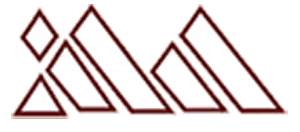PEMBANGUNAN PENDIDIKAN SAINS DAN MODAL INSAN (SCIENCE EDUCATION DEVELOPMENT AND HUMAN CAPITAL)
Abstract
Abstrak
Kehidupan yang semakin moden memerlukan ahli masyarakat bukan sahaja dapat menyumbang kepada penciptaan baru teknologi tetapi juga tahu dan menyokong penggunaan kemudahan teknologi. Justeru, sukatan pelajaran pendidikan sains perlu ada isi kandungan yang bukan hanya mengajar mengenai fakta-fakta sains tetapi juga pengaruh, kesan serta kepentingan sains dan teknologi kepada kehidupan manusia dan alam sekitar. Pendidikan sains seharusnya merangkumi ilmu pengetahuan serta pembangunan insan yang meliputi nilai-nilai murni dan bukan hanya berkaitan fakta serta formula sains semata-mata. Kejayaan masa hadapan bergantung kepada mutu modal insan yang dimiliki, bukan sahaja dari segi intelek tetapi juga keperibadian yang merangkumi nilai-nilai murni. Ilmu pengetahuan yang diperolehi daripada pendidikan sains boleh memberikan gambaran, penerangan dan jawapan mengapa manusia mesti mengamalkan budaya hidup yang mengandungi etika, sahsiah dan nilai-nilai murni kerana sains adalah bidang ilmu yang berlandaskan fakta, maka setiap fenomena yang berlaku boleh dijawab dengan fakta sains dan disokong dengan penerapan nilai-nilai murni sebagai sokongan.
Kata kunci: Pendidikan Sains, Modal Insan, Sekolah rendah
Abstract
An increasingly modern life requires members of society to not only contribute to the creation of new technologies but also to know and support the use of technological facilities. Thus, the science education syllabus should have content that not only teaches about the facts of science but also the influence, impact and importance of science and technology on human life and the environment. Science education should include knowledge and human development that includes good values and not just related to science facts and formulas alone. The future success depends on the quality of human capital possessed, not only intellectually but also personality which encompasses noble values. The knowledge gained from science education can provide an overview, explanation and answer why human beings must practice a culture of life that contains ethics, personality and noble values because science is a field of knowledge based on facts, then every phenomenon that occurs can be answered with scientific facts and supported by the application of noble values as support.
Keywords: Science education, Human Capital, Primary School
Full Text:
PDFReferences
Alford, K. 1997. The Development of Children’s Ideas In Science.. Australian Primary & Junior Science Journal 13(1): 23 – 25.
Bahagian Pembagunan Kurikulum (BPK), 2014. Kurikulum Standard Sekolah Rendah. Dokumen Standard Kurikulum & Pentadsiran – Pendidikan Sains. Putrajaya:Kementerian Pendidikan Malaysia.
Bybee, R.W. 1997. Achieving Scientific Literacy:From Purpose to Practices. http://www.nestafuturelab.org/research/reviews/psi05.htm [3.2.2005]
Driver,R. 1983. The Pupils as Scientist. Buckingham : Open University Press.
Felske, D, 2000. A Historical Examination Of The Nature Of Science And Its Consensus As Presented In The Benchmarks For Science Literacy And National Science Education Standards. Tesis Doktor Falsafah, University of Houston.
Harlen.W. 2001. Research In Primary Science Education. Journal of Biological Education 35(2): 61 – 65.
Huckle, J. & Sterling S. 1996. Realizing Sustainability in Changing Times. Dlm Education For Sustainability. London: Earthscan Publications Ltd.
Khalijah Mohd Salleh 1996. Paradigma Sains Moden dan Pembangunan Sumber Manusia. Bangi: Penerbit UKM.
Lee, G. 2000. Science Literacy. http://www.space.com/opinionscolumns/gentrylee/scienceliteracygentry000804.html
Littledyke, M. 2002. Primary Children’s Views on Science and Environmental Issues: Examples of Environmental Cognitive and Moral Development. Kertas pembentangan di European Conference on Educational Research, University of Lisbon, 11-14 September 2002.
Nisbet, M 2003. Who's Getting It Right and Who's Getting It Wrong in the Debate About Science Literacy? http://www.csicop.org/scienceandmedia/literacy [24.3.2005]
Osborne, R.J. & Freyberg, P. 1985. Learning In Science : The Implications of Children’s Science. Portsmouth: Heinemann Publishers.
Pusat Perkembangan Kurikulum (PPK). 2017. Kementerian Pelajaran Malaysia.
Webb, M.O., Karabayevab, A.G., Kuntuovab, I.M. 2015. The Role Of Philosophy In The Life Of A Student Of A Technical University. Procedia - Social and Behavioral Sciences 174: 3847 – 3852.
Westby. C & Torres-Velásquez, D. 2000. Developing Scientific Literacy: A Sociocultural Approach. Remedial & Special Education 21(2): 21-77.
Zachariou, P., Voulgari, I., Tsami, E., Bersimis, S. 2020. Exploring the Attitudes of Secondary Education Students on Environmental Education in Relation to their Perceptions on Environmental Problems: The Case of the Prefecture of Viotia. Interdisciplinary Journal of Environmental and Science Education 2020 16(1).
Refbacks
- There are currently no refbacks.

IKATAN AHLI ARKEOLOGI MALAYSIA
d/a Institut Alam dan Tamadun Melayu
Universiti Kebangsaan Malaysia
43600 UKM Bangi, Selangor Darul Ehsan, Malaysia
Tel: +60 3 8921 5280
